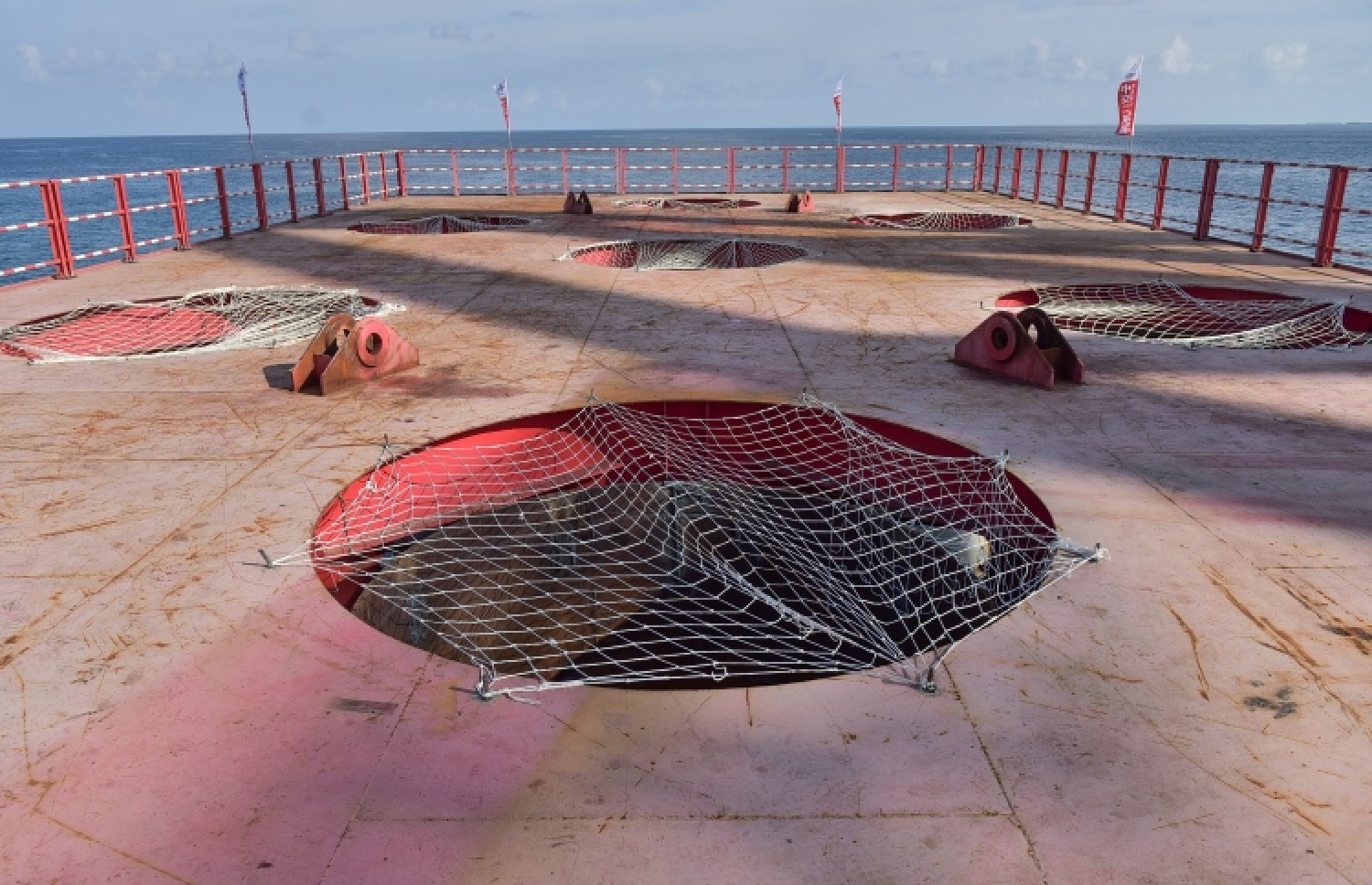[embed]https://www.youtube.com/watch?v=uUTT5M6sqjw[/embed]
With the completion of piling the seven main pillars of the overwater bridge being developed between capital Male and airport island Hulhule, the most challenging stage of its construction has finally been completed.
Experts had declared that piling the main pillars would be the hardest part of the project even before development of the China-Maldives Friendship Bridge had commenced. State of the art German technology was also used in this stage, which saw some of the 35 piles in the seven pillars being driven 100 metres deep into the seabed.
Minister of Housing and Infrastructure Dr Mohamed Muizzu made the announcement late Wednesday via a tweet, disclosing that 32 of the 74 piles on the Male end of the bridge have also been set in addition to the main pillars.
The current work in progress is removal of sand from within the piles, after which they will be reinforced with concrete. Mihaaru understands that concrete reinforcement of some of the piles have already been completed. The reinforcement will be followed by capping the seven pillars.

Deputing Housing Minister Abdulla Muthalib celebrated the completion of piling the main pillars as a great achievement in the ongoing project.
“Two of the three barges [currently deployed at the bridge] will be transported out of the Maldives as the most difficult work of the barges is finished,” said the deputy minister, explaining that the current temporary bridge will be used to proceed with the project afterwards.
Deputy Minister Muthalib further disclosed that piling the seven main pillars has ended far ahead of schedule, which had earlier estimated the work to be finished in coming January or by the end of this month.
According to senior officials of the project contractor, CCCC Second Harbour Engineering Company Ltd, the remaining stages of bridge construction will proceed smoothly and with haste now that piling has been completed.
The government is planning to unveil the China-Maldives Friendship Bridge in July 2018.
The Chinese government is providing free aid of USD 116 million to fund the project which costs total USD 200 million. China also granted a loan of USD 72 million while the Maldives government is investing USD 12 million for the project.